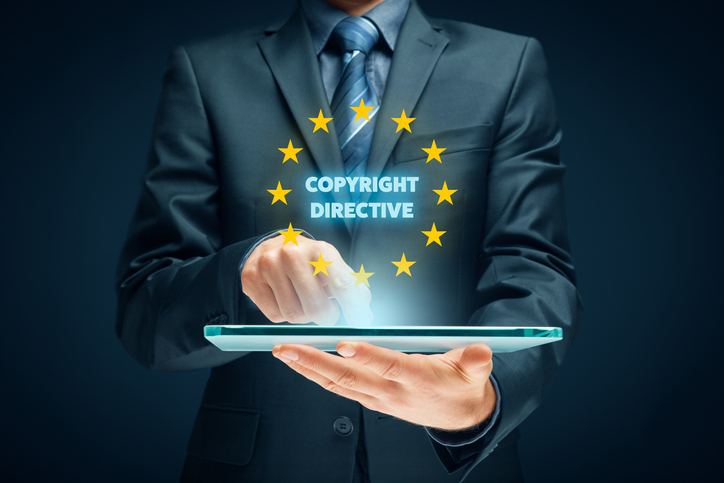The EU Copyright Directive, good news or bad news for the Internet?
Charlotte Burroughs, a solicitor in our Commercial & Technology team provides an overview on the EU Copyright Directive and what it means for the Internet.
The Directive on Copyright in the Digital Single Market (“Directive”) entered into force on 6 June 2019 and Member States have until 7 June 2021 to give effect to its provisions in national law.
Given that the Transition Period ended on 31 December 2020, and the implementation date is in June 2021, the UK is under no obligation to enact national legislation to give effect to the Directive. Furthermore, the UK Government have confirmed that it has no plans to do so.
Nevertheless, UK media businesses that continue to trade in the EU will need to comply with the requirements of the Directive, as enacted by the laws of each Member State.
In a nutshell, the Directive was introduced to update copyright law for the digital age, in particular to address the widespread reproduction of content online. Research indicates that many internet users access content (including articles, music and film clips) via social networks, information aggregators or search engines without clicking through.
The key provisions of the Directive are:
- Where authors and performers license or transfer their exclusive rights for the exploitation of their works or other subject matter, they are entitled to receive appropriate and proportionate remuneration.
- Except in specified circumstances, authors, performers, or their representatives, can request additional appropriate remuneration from the party with whom they entered into a contract for the exploitation of their rights, if the agreed remuneration is disproportionately low compared to the revenue and benefits derived from exploitation.
- A right of revocation for authors and performers who have licensed or transferred their rights in a work if there is a lack of exploitation.
- Article 17 (previously article 13) under which online content sharing providers will be held liable for unauthorised acts of communication and publicising copyright protected works unless they can demonstrate specified best-efforts standards.
The EU’s view is that this Directive will help those in creative industries (such as journalists, writers, singers and musicians) by giving them stronger rights and consequently greater leverage in negotiations with the large platforms publishing their content. At the same time the Directive recognises the importance of freedom of expression by allowing users to use existing works for the purposes of quotation, criticism, review, caricature and parody.
However the Directive has been subject to much criticism, the main objection being that it will make it more difficult for websites to link to third party content. Such websites will need to obtain licences from the rights holders before publishing content and they will need to ensure that their users do not publish unauthorised content.
Advocates against article 17 of the Directive have argued that:
- Content platforms may be forced to implement some kind of upload filters to defend themselves against potential user-related copyright violations claims.
- Only large websites will have the means and organisation to obtain licences from rights holders, meaning smaller companies will be pushed out.
For those businesses who may be affected by these changes, we suggest that you review the requirements of the Directive and ensure that you are prepared for the Directive’s implementation in Member States on 7 June 2021.
If you have any questions about the issues raised in this article, please contact Charlotte Burroughs or one of the other members of FSP’s Commercial & Technology team.

